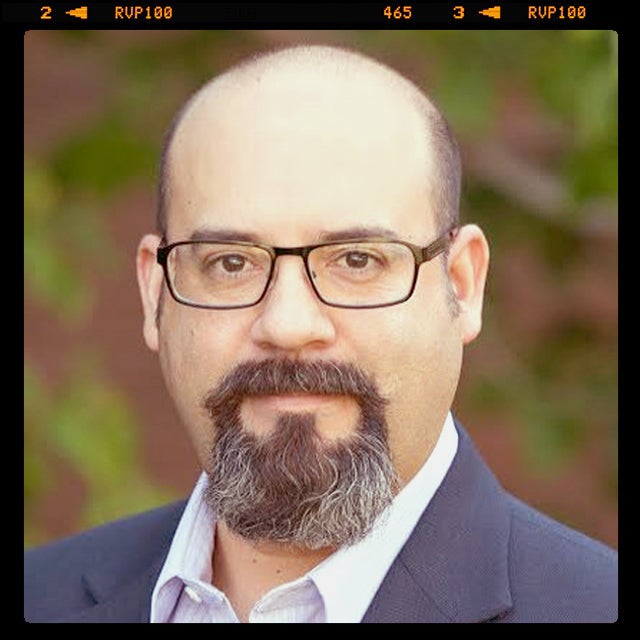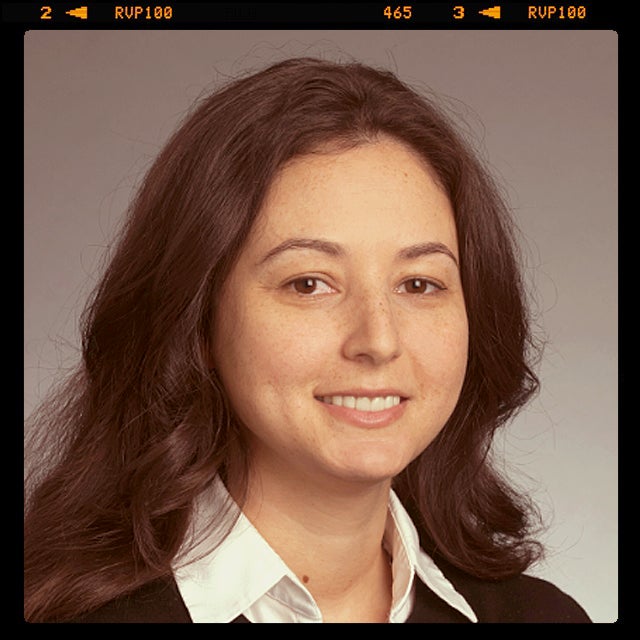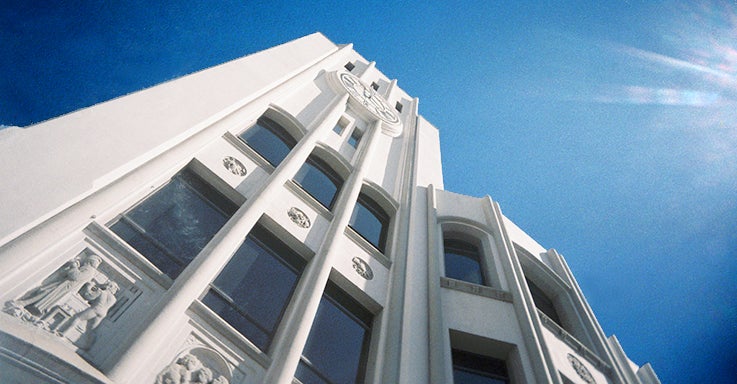

Memo Cordova is an associate professor/librarian at Boise State University’s Albertsons Library. His research interests center around disruptive technology systems and their impact in libraries, education, and the humanities.

Amber Sherman is an assistant professor/librarian at Boise State University’s Albertsons Library in the Scholarly Communication and Data Management unit.
Democratizing Information Access
Many scholarly articles that contain research useful to the public are locked behind expensive subscription databases. Coupled with existing publishing and tenure/promotion practices, these contribute to a system that excludes the majority of citizens from accessing current academic findings. However, by publishing academic articles in open access journals instead, faculty at colleges and universities can play an important role in making it easier, and less expensive, for the public, media, and local leaders to read their work. This requires faculty to make different choices and a concurrent shift in how academic departments evaluate faculty publications.As librarians, one of our main responsibilities is teaching students how to locate, evaluate, and use information. Much of the most current peer-reviewed information is available only to students, faculty, and staff at colleges or universities through expensive subscriptions. Once students graduate, this costly access to information is curtailed. We believe in the importance of information literacy–helping students find credible and peer reviewed research articles that are more trustworthy than propagandist or satirical websites. The comments and tweets made by President Donald Trump follow a disturbing trend that treats rumor as facts, conflates opinion with truths, and echoes everything on the Internet as gospel. Compound that with stories about the influence of fake news on voters, and the need for information literacy skills becomes more apparent than ever.
The Exclusivity of Scholarship

Most people do not have easy or free access to academic scholarship–nor does the press, which tends to translate information to the general public. For example, if a person not enrolled in higher education hears a story (or reads a bombastic tweet) about crime statistics, and wishes to read a peer-reviewed, scholarly article about that subject from a respected journal, they would be met with an average fee of around $35. Is it more likely that they would pay such a fee, or click on a link that does not have a paywall?
Idahoans are lucky to have LiLI.org (Libraries Linking Idaho), which provides a wide range of databases to the public. Still, this platform includes only a fraction of the total output of academic literature. For example, a 2015 report from the International Association of Scientific, Technical and Medical Publishers (STM), states that “there are about 28,100 active scholarly peer-reviewed English-language journals in late 2014 (plus a further 6450 non-English-language journals), collectively publishing about 2.5 million articles a year.” For access to a bigger collection of publications, a person would have to visit an academic library at one of Idaho’s public universities.
Savvy Internet users can access portals like Sci-Hub, “the first pirate website in the world to provide mass and public access to tens of millions of research papers,” where anyone can download paywall articles for free. At last count Sci-Hub had over 58,000,000 papers in their library. Or people on Twitter can use the hashtag #icanhazpdf to have a paywall article sent to them anonymously for free. As official, law-abiding, copyright respecting librarians, we don’t endorse these last two methods. (And even if users pay for access, or find an article through these other means, the abstract might be too complex, or the language too specialized, for a general reader to understand without a deep knowledge of the subject.)
People affiliated with colleges and universities enjoy considerable privilege by being able to access archived and newly published articles across many disciplines. For example, the Albertsons Library at Boise State University is allocated a materials budget of around $3 million dollars for a fiscal year (based on 2016 fiscal year figures). However, the library is not able to provide faculty, or students, with all the titles they need for their research. Much of that money covers ongoing database-bundled contracts, maintenance fees, inflation costs, and miscellaneous expenditures necessary to keep such electronic resources available. These constitute roughly 90% of that $3 million figure.
The Open Access Alternative
Publishing options have evolved with the Internet. Even though sharing documents digitally is easy and low-cost, some publishers charge libraries more to access online articles. Thankfully, there is an alternative. “Open Access” (OA) is the “free, immediate, online availability of research articles coupled with the rights to use these articles fully in the digital environment.” However, because the OA model undercuts and disrupts (and has the potential to bypass) publishers’ lucrative business model, publishing companies place restrictions on how articles are processed before they see publication. Companies label these restrictions as Gold, Green, and Hybrid options, and each has its own set of publishing parameters. These include a possible article-processing charge to be paid by the author, or requiring a self-archived version of the paper be kept under embargo for a specified length of time.
“Once it is finally accepted, since it is so hard to get acceptances, I am so delighted that I will sign anything - send me a form and I will sign it. I have no idea I have signed over my copyright or what implications that has - nor do I care, because it has no impact on me. The reward is the publication.”
Jason Schmitt
We encourage faculty to publish in open access environments whenever possible. Academic departments must also reevaluate the potential impact open access publications may have when granting tenure and promotion. Tenure, as defined by Boise State University’s policy, is “a condition of presumed continuous employment following the expiration of a probationary period and after meeting the appropriate criteria.” Tenure and promotion committees have preferred top-tier journals where they want junior faculty publishing. Many require an expensive article processing charge, ranging from $500-$5,000 to make the individual article Open Access. This designation of top-tier is influenced by subjective metrics, created and managed by the very same publishers that benefit monetarily from faculty scholarship. Junior faculty could feel secure following their committees list of recommended journals and making their article Open Access by paying these fees, but many schools cannot provide stipends while still paying journal subscriptions.
Brian Nosek, a professor at the University of Virginia and director of the Center for Open Science, spoke about this in Jason Schmitt’s article on academic publishing:
Academic publishing is the perfect business model to make a lot of money. You have the producer and consumer as the same person: the researcher. And the researcher has no idea how much anything costs.” Nosek finds this whole system is designed to maximize the amount of profit. “I, as the researcher, produce the scholarship and I want it to have the biggest impact possible and so what I care about is the prestige of the journal and how many people read it. Once it is finally accepted, since it is so hard to get acceptances, I am so delighted that I will sign anything — send me a form and I will sign it. I have no idea I have signed over my copyright or what implications that has — nor do I care, because it has no impact on me. The reward is the publication.
The form Nosek refers to may be a Copyright Transfer Agreement, and authors often times can negotiate the terms of this document. For example, authors can submit an addendum to the agreement to retain copyrights, such as allowing an institutional repository to post a copy of the article or creative work online. Although publishing choices are not simple, authors should care about the role these global publishing companies play in perpetuating and sustaining barriers to public access, including keeping the rights to the intellectual capital created by academics.
A growing number of colleges and universities have OA policies in place, such as MIT, Harvard, and the University of California. In general these policies serve to protect an author’s copyright and to ensure the wide dissemination of their work through their own institutional repository or similar arrangements. The Association of College and Research Libraries (ACRL) recently released a statement of support for open access publishing for all librarians. ACRL recognizes that OA provides a sustainable, open system of scholarly dissemination. It doesn’t mean to suggest that authors should only publish with OA licenses, but academics can make a greater contribution to as well as advance further access to the corpus of human knowledge through it. Lawrence Lessig, a leader of the Open movement (and a presidential candidate himself), spoke about these issues at the 2015 ACRL conference.
Problematic Publishing and Tenure Practices
We believe that access to information is a universal human right, and journal articles available through the library are very expensive. Faculty can make a difference by choosing a path of open publishing, and also by engaging in conversations about these issues with their colleagues. This path has other author benefits, such as “increases in citations, media attention, potential collaborators, job opportunities and funding opportunities.” Dissemination of open works can be tracked through download statistics from institutional repositories, social media mentions, or other alternative metrics. Faculty can present these metrics to Tenure committees to show scholarship can be measured beyond the pedigree or perceived standing of a publication and its dubious impact factor.
Ideally, all academics should engage in changing current publishing practices, and tenure committees should adapt to new ways of valuing scholarly impact. Making a commitment to publish via open access will expose scholarship and research to more people that want to read it, and it is something one can do right now. Letting the world have access to research is a crucial component of an aware and involved society. It won’t eliminate the non-credible stories, but maybe there will be an increase in awareness by the public, especially if scholars work to make scholarship more available to people beyond the ivory tower.